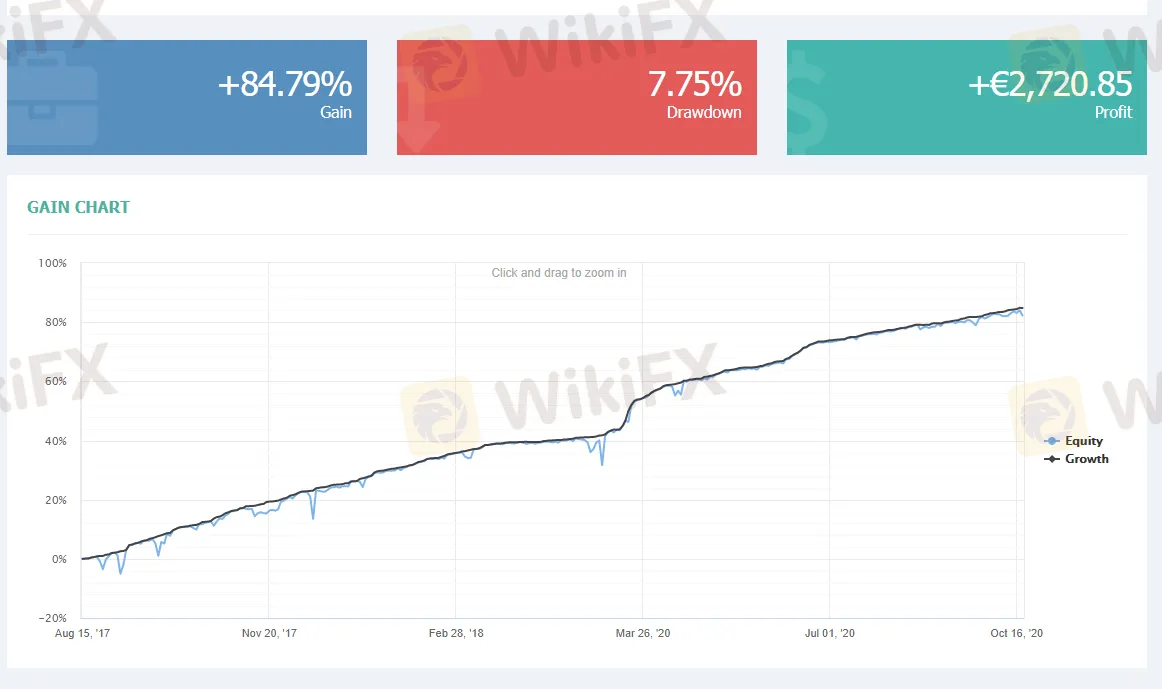简体中文
繁體中文
English
Pусский
日本語
ภาษาไทย
Tiếng Việt
Bahasa Indonesia
Español
हिन्दी
Filippiiniläinen
Français
Deutsch
Português
Türkçe
한국어
العربية
Think Like a Fund Manager, Not a Trader
Abstract:Here are the problems that traders always face that make them constantly lose money even when they have been trading for a long time.
Why is the number of successful traders in the market always so small? It is said that most traders, in the end, would fail. So, is there any secret or holy grail in this market that we do not know about?
Fund managers are professional investors who always adhere to the principles of survival in finance. Traders are individuals who are new to the profession and are still careless in trading.
Here are the problems that traders always face that make them constantly lose money even when they have been trading for a long time. On the contrary, the fund managers will just have their accounts kept growing.
Fund managers find reasons for entering market – traders always find reasons for entering markets
New traders often have a very high demand for entering orders because they believe that the more orders they enter, the more money they can make. The truth is that the more the orders, the more the cost which includes spread, commission or swap, etc. Moreover, the more the orders, the lower the rate of return. Entering too many orders also harms trading psychology and easily makes unnecessary mistakes.
On the contrary, a Fund Manager will always wonder, “Is there anything else that makes the order not necessary?” If there is no reason to stop, they will enter. And once they have made up their mind, they completely believe in their decision.
You will find that fund managers hardly move their Stop loss or Take Profit. Meanwhile traders are looking for a chance to move Stop loss level further and refuse to just take an acceptable profit. Traders often finish their positions and then begin to analyze a lot and keep asking themselves whether others also enter the same order or not. This is the difference of success and failure.
Fund managers focus on risk management – traders focus on profit taking
This is a very critical difference. A Trader always thinks about profits and because they focus too much on profits, they will force themselves to accept a higher risks ratio, which is already a huge mistake in trading. Meanwhile, A Fund Manager emphasizes preserving capital and would rather regret not entering an order than regret having entered one.

A professional fund manager is always looking for ways to limit risks and make accounts grow steadily and compound interest will help them become extremely rich. Warren Buffett is a prime example under this circumstance with a steadily growing account and compound interest rate of 25% a year that made him extremely wealthy. Traders always want to find themselves a formula with huge interest rates but their trading account cannot even last for more than a year.
The fund managers know in advance how much money they will lose and they always prepare for the worst which is that all their orders can lose, therefore when it really happens, they are not too surprising and they will know what to do next. As for traders, they always think they have a chance to win in every transaction and if they win, how much money they will earn, instead of thinking about how much money they can lose. That is why many losing trades will affect their emotion and emotion burns accounts faster.
Fund managers hold no secret to success – traders attach success to a perfect system
Fund managers focus on compliance and maintaining consistency in the trading strategy. Because of this, they produce consistent and lasting results over the years.
And traders always believe that if they can somehow find the “Secret Key”, it will change their lives. So they constantly change their methods and never be able to master a certain method. Because of that, their results are not consistent and lasting and traders are always in the feeling of dissatisfaction with their results.
We have to admit that there is no perfect method because the “Bigboys” on the market have a lot of potential in all aspects finance - relationship - technology. If there were really a secret method or an effective EA then these “Bigboys” would be willing to spend billions of dollars on it. So why dont we focus on the more effective things you can do best.

Fund managers aware that they cant win forever – traders hope that they can win forever
The truth is that no matter how effective your strategy is or how accurate your indicator is, the probability of winning and losing is mathematically 50-50.
Fund managers understand this well so they always carefully set a reasonable stop loss for every order. Because they understand that every order has the potential to lose, and never risks more than the amount previously planned for whatever reason.
Traders are always excited when they see a good entry signal, satisfying all their intertwined indicators, and think they cannot lose. With that in mind, traders risk more than they are supposed to risk.
Sometimes they even bet their entire account on an order hoping to make up for losing orders. They do not understand that in the market nothing is impossible, even an order they consider “unlosable” still loses as usual.
Fund managers see long term – traders see short term
For a fund manager, win or loss is not a big deal. It is just a brick for them to build their great work. They will carefully nurture their account and watch it grow over time in years, not months or weeks.
For a trader, they consider each order as a battle that they are determined not to lose. They got excited about a winning order and became overconfident and then overflowed with just one losing transaction.
Fund Managers trading mentality is peace and steadiness with absolute confidence in long-term victory. An amateur trader is filled with insecurity, dominated by greed, fear, pressure and despair.
So, winning the harsh financial markets is not easy. But you still have the ability to win if you carefully read the 5 lessons above, your future in the financial market will be very brilliant.
Disclaimer:
The views in this article only represent the author's personal views, and do not constitute investment advice on this platform. This platform does not guarantee the accuracy, completeness and timeliness of the information in the article, and will not be liable for any loss caused by the use of or reliance on the information in the article.
Read more
WikiFX Broker
Latest News
Will Gold Break $2,625 Amid Fed Caution and Geopolitical Risks?
ECB Targets 2% Inflation as Medium-Term Goal
New Year, New Surge: Will Oil Prices Keep Rising?
PH SEC Issues Crypto Guidelines for Crypto-Asset Service Providers
FTX Chapter 11 Restructuring Plan Activated: $16 Billion to Be Distributed
Bithumb CEO Jailed and Fined Over Bribery Scheme in Token Listing Process
WikiFX Review: Something You Need to Know About Saxo
Is PGM Broker Reliable? Full Review
Terraform Labs Co-founder Do Kwon Extradited to the U.S. to Face Fraud Charges
Has the Yen Lost Its Safe-Haven Status?
Currency Calculator








